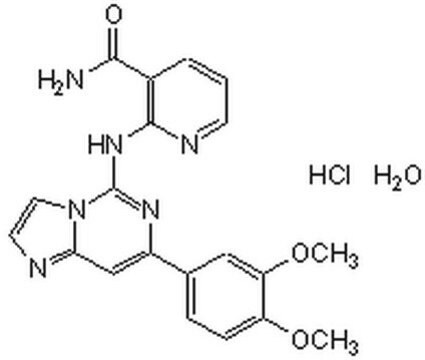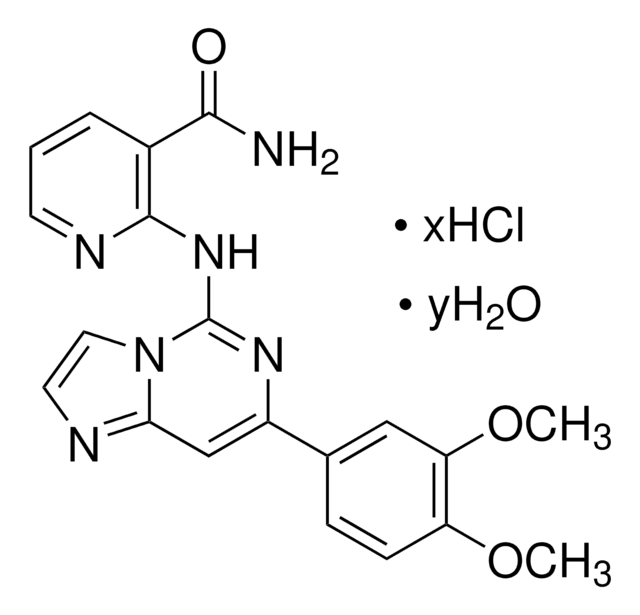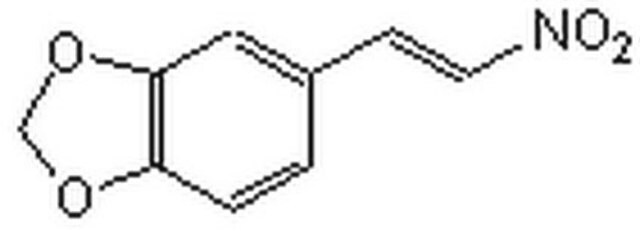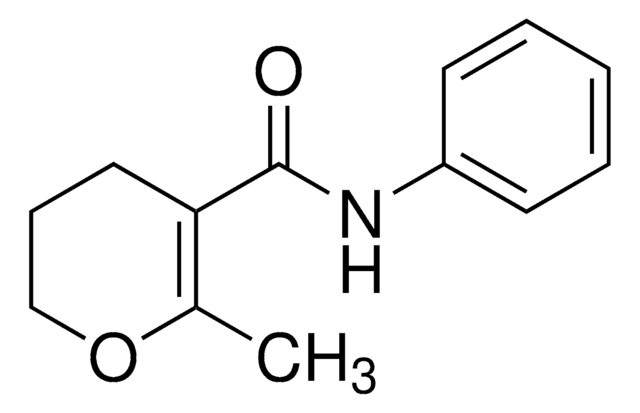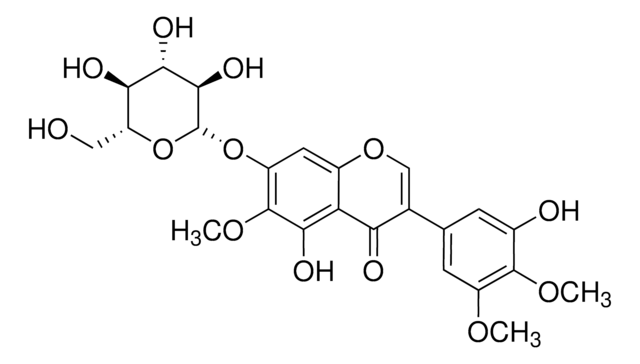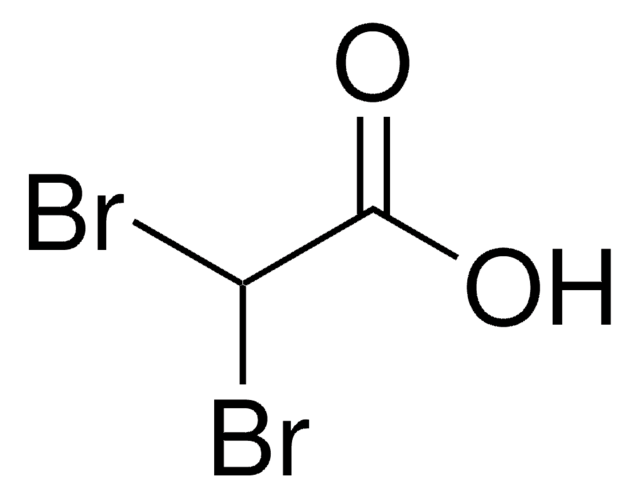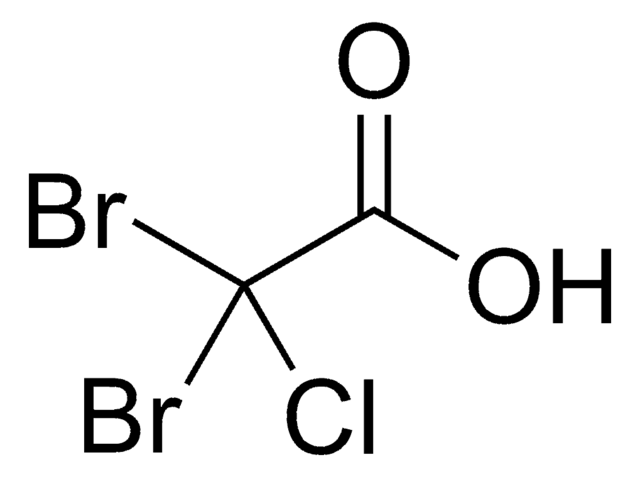574711
Syk Inhibitor
The Spleen Tyrosine Kinase Inhibitor, also referenced under CAS 622387-85-3, controls the biological activity of Spleen Tyrosine Kinase. This small molecule/inhibitor is primarily used for Phosphorylation & Dephosphorylation applications.
Synonym(s):
Syk Inhibitor, Spleen Tyrosine Kinase Inhibitor, 3-(1-Methyl-1H-indol-3-yl-methylene)-2-oxo-2,3-dihydro-1H-indole-5-sulfonamide
About This Item
Recommended Products
Quality Level
assay
≥97% (sum of two isomers, HPLC)
form
solid
potency
14 nM IC50
manufacturer/tradename
Calbiochem®
storage condition
OK to freeze
protect from light
color
deep orange
solubility
DMSO: 5 mg/mL
shipped in
ambient
storage temp.
2-8°C
InChI
1S/C18H15N3O3S/c1-21-10-11(13-4-2-3-5-17(13)21)8-15-14-9-12(25(19,23)24)6-7-16(14)20-18(15)22/h2-10H,1H3,(H,20,22)(H2,19,23,24)
InChI key
MLKHXLFEYOOYEY-UHFFFAOYSA-N
General description
Biochem/physiol Actions
Packaging
Warning
Other Notes
Legal Information
Storage Class
11 - Combustible Solids
wgk_germany
WGK 1
flash_point_f
Not applicable
flash_point_c
Not applicable
Certificates of Analysis (COA)
Search for Certificates of Analysis (COA) by entering the products Lot/Batch Number. Lot and Batch Numbers can be found on a product’s label following the words ‘Lot’ or ‘Batch’.
Already Own This Product?
Find documentation for the products that you have recently purchased in the Document Library.
Our team of scientists has experience in all areas of research including Life Science, Material Science, Chemical Synthesis, Chromatography, Analytical and many others.
Contact Technical Service